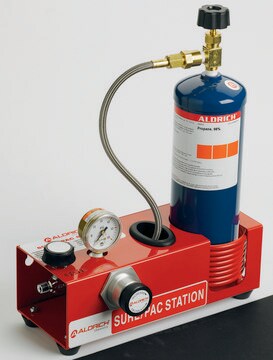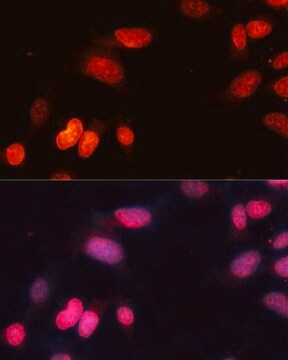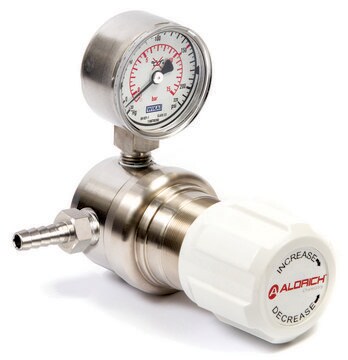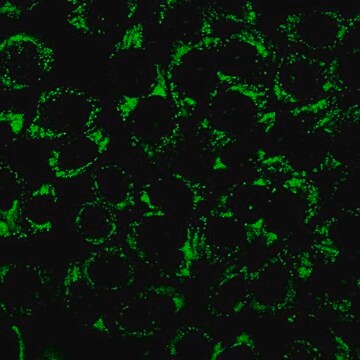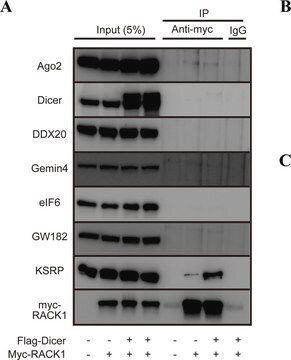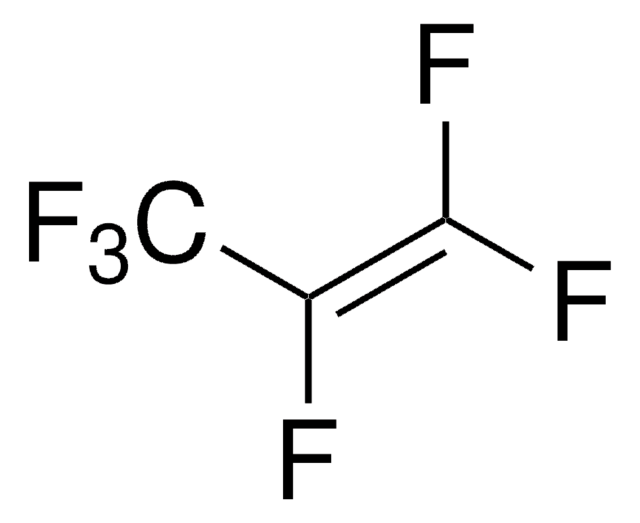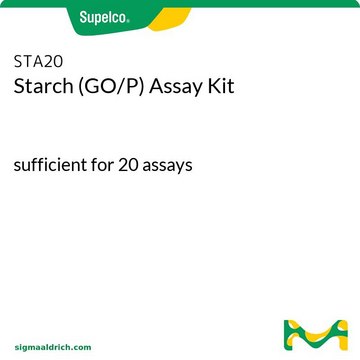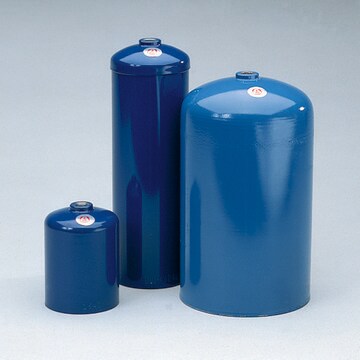295264
1,1-Difluorethan
≥98%
Synonym(e):
HFC-152a
Anmeldenzur Ansicht organisationsspezifischer und vertraglich vereinbarter Preise
Alle Fotos(1)
About This Item
Lineare Formel:
CH3CHF2
CAS-Nummer:
Molekulargewicht:
66.05
EG-Nummer:
MDL-Nummer:
UNSPSC-Code:
12142100
PubChem Substanz-ID:
NACRES:
NA.22
Empfohlene Produkte
Dampfdichte
2.28 (vs air)
Qualitätsniveau
Assay
≥98%
bp
−25 °C (lit.)
mp (Schmelzpunkt)
−117 °C (lit.)
Funktionelle Gruppe
fluoro
SMILES String
CC(F)F
InChI
1S/C2H4F2/c1-2(3)4/h2H,1H3
InChIKey
NPNPZTNLOVBDOC-UHFFFAOYSA-N
Verpackung
Packaged in carbon steel lecture bottles with CGA 110F/180M Al-Si-Bronze needle valve.
Rechtliche Hinweise
Aldrich is a registered trademark of Sigma-Aldrich Co. LLC
Sure/Pac is a trademark of Sigma-Aldrich Co. LLC
Empfehlung
Produkt-Nr.
Beschreibung
Preisangaben
Regulierungsbehörde
Produkt-Nr.
Beschreibung
Preisangaben
Schlaucholive
Produkt-Nr.
Beschreibung
Preisangaben
auch häufig zusammen mit diesem Produkt gekauft
Produkt-Nr.
Beschreibung
Preisangaben
Signalwort
Danger
H-Sätze
Gefahreneinstufungen
Flam. Gas 1A - Press. Gas Liquefied gas
Lagerklassenschlüssel
2A - Gases
WGK
WGK 1
Flammpunkt (°F)
Not applicable
Flammpunkt (°C)
Not applicable
Persönliche Schutzausrüstung
Eyeshields, Faceshields, Gloves
Hier finden Sie alle aktuellen Versionen:
Besitzen Sie dieses Produkt bereits?
In der Dokumentenbibliothek finden Sie die Dokumentation zu den Produkten, die Sie kürzlich erworben haben.
Chris Vance et al.
Journal of analytical toxicology, 36(9), 626-633 (2012-10-05)
Intentional abuse of 1,1-difluoroethane has been reported to cause transient symptoms such as confusion, tremors, pulmonary irritation, loss of consciousness and, rarely, coma. In the last five years, 17 cases from the San Diego County Medical Examiner's Office showed the
Peter C Kurniali et al.
The American journal of emergency medicine, 30(1), 265-265 (2011-02-08)
Inhalant abuse is the intentional inhalation of chemical vapors or volatile substance to achieve a euphoric effect. Although no statistical data are reported yet, inhalant abuse is potentially life-threatening and has resulted in a wide range of toxic effects such
D A Kuspis et al.
Journal of toxicology. Clinical toxicology, 37(7), 873-875 (2000-01-12)
A serious but rarely reported complication of halogenated hydrocarbon inhalation abuse is severe mucosal frostbite. A 16-year-old male attempted to "get high" by inhaling airbrush propellant which contained 1,1-difluoroethane (CAS #75-376). The patient lost consciousness and upon awakening his lips
L A Broussard et al.
Journal of forensic sciences, 42(6), 1186-1187 (1997-12-16)
The 18-year-old white male driver and 17-year-old white male passenger of an automobile were killed when their vehicle crossed the median of a 4-lane highway and collided with a minivan. A can of airbrush propellant was found in the automobile
Kentaro Sakai et al.
Forensic science international, 206(1-3), e58-e61 (2010-09-30)
Spray cleaner is a cleaning product containing compressed 1,1-difluoroethane (HFC-152a) to blow dust off electric devices and other sensitive equipment; however, it is also inhaled to induce euphoria. This report describes three cases of death involving HFC-152a inhalation with spray
Unser Team von Wissenschaftlern verfügt über Erfahrung in allen Forschungsbereichen einschließlich Life Science, Materialwissenschaften, chemischer Synthese, Chromatographie, Analytik und vielen mehr..
Setzen Sie sich mit dem technischen Dienst in Verbindung.